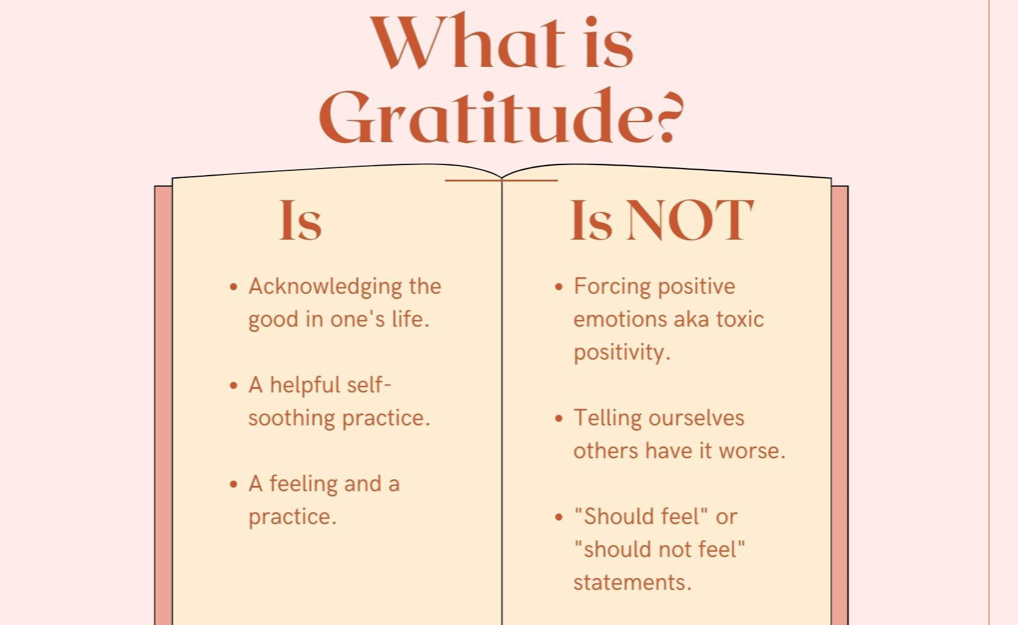"Dream, Dream, Dream! Conduct these dreams into thoughts, and then transform them into action."
- Dr. A. P. J. Abdul Kalam
"Dream, Dream, Dream! Conduct these dreams into thoughts, and then transform them into action."
- Dr. A. P. J. Abdul Kalam
26 Feb 2024
One may define gratitude as “the quality of being thankful.” Alternatively, we can think of it as an attitude, emotion, personal trait, or behavioral practice. However it is conceived, that the quality of being grateful is a foundational component of daily social exchange and can carry deep meaning both on interpersonal and intrapersonal levels.

Perhaps not coincidentally, when learning a new language, “thanks” is often one of the first words taught and acquired. Expressing thanks is seen as a universal sign of acknowledgment, respect, and humility, and it transcends culture and time. The very act conveys a caring for the other person in a connected relationship. When transacted genuinely, it solidifies meaning that something of value and worth has transpired. The act and reverberations leave both the person offering the gratitude and the person receiving it feeling better in general, as well as better about self and others. This concept of gratitude is a main tenet of the Catholic faith and even forms the elemental basis of saying grace before a meal.

Positive psychology research has repeatedly shown a connection between gratitude and enhanced health and happiness. We're going to talk about a few simple methods that you may start cultivating thankfulness daily today:
Practicing gratitude is an essential aspect of Christianity, particularly during 'Mass and prayer'. The term "Eucharist" originates from the Greek word for "thanksgiving," underscoring its significance in expressing gratitude. Both priests and religious individuals emphasize the importance of gratitude, not only in personal and vocational development but also in everyday life. The concept of gratitude serves as a simple yet potent reminder, reflecting two interconnected aspects of thankfulness.
The Key to Contentment ~
Practicing gratitude can be an integral part of knowing and maintaining real contentment. During tough times when we find life a struggle, being grateful for one’s whole circumstance and making a ritual out of gratitude may seem especially counterintuitive, yet it can provide an effective vehicle through those emotional or behavioral difficulties. Despite this cognitive understanding regarding the conceptual importance of gratitude, practical offerings of gratitude can sometimes become more rote or a less genuinely felt part of our daily, lived experiences. When this happens we can accidentally diminish a crucial source of spiritual connection and personal happiness. Psychological research supports what we already know on a personal, institutional, and even national (Thanksgiving Day) level: 'Giving thanks is a vital way to connect to something larger than ourselves and enhances feelings of optimism and well-being in general. Stated differently, our mental health can actively be improved through purposeful practices of gratitude.'
Gratitude’s Impact on Well-Being: Insights from 'Counting Blessing Versus Burdens'~
Positive psychology approaches scientific theory and inquiry from the perspective of how best to help individuals experience greater fulfillment in life. Various studies have indicated correlations between intentionally practicing thankfulness and an increased sense of personal happiness, decreased anxiety and depression, more restful sleep, and beneficial changes in brain chemistry. In “Counting Blessings Versus Burdens,” by Emmons and McCullough (2003), the researchers conducted three studies on whether practicing gratitude had an impact on well-being. The results of the study imply that gratitude may be a key component of a comprehensive wellness plan. When faced with obstacles in life, placing more attention on blessings than burdens is a more effective coping mechanism. Moreover, developing an attitude of appreciation offers an alternative perspective to the widely held notion that pleasure is exclusively dependent on outside factors. The way that one views life, especially thankfulness, is greatly influenced by their internal viewpoint.
More Necessary Now Than Ever
As extreme political strife and global uncertainty only add to an already stressful existence, it may be a particularly good time for a self-care challenge. Find a simple but effective-for-you way(s) of being, saying, and noticing what and for whom you are thankful. Be creative, but don’t forget to practice. Just like physical muscles, our gratitude muscles can atrophy when not stretched!
Communities and organizations may build more encouraging and pleasant settings as well as a more compassionate society by promoting a culture of thankfulness! Hence We should remember ~ If taking a minute to ponder about the positive aspects of the day has so many advantages, then why does it occasionally feel like such a hardship? The downsides or the difficult aspects of the day often appear to suddenly take over and take control when we are overworked, under stress, or dealing with difficulties in our lives. We tend to focus on the wind and rain during a storm, forgetting that the sun is still visible behind the clouds. Let us start practicing gratitude daily from now on!